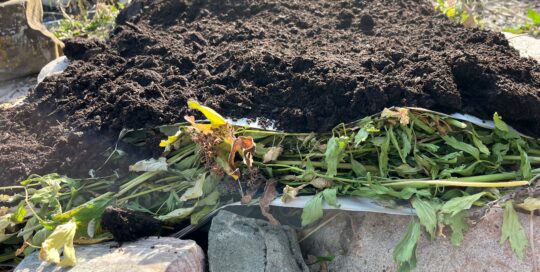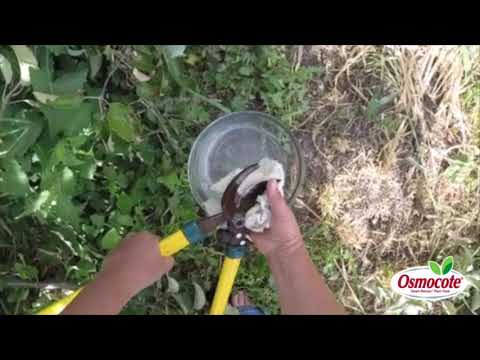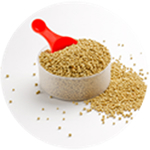Tips for Keeping Your Seedlings Disease-Free
Views: 14940
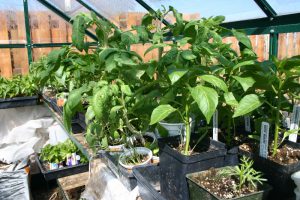
It’s the time of the year when windowsills or plant racks are filled with precious little seedlings.
There’s nothing as hopeful as the tiny sprigs of bright green, and nothing sadder than to see them bend over and die. To prevent disappointment, here are a few tips on keeping your seedlings disease free.
Clean Seedling Containers
Although it’s not much fun when all you want to do is spread out your packets of seeds and start planting, the first thing you really should do is clean your containers that were used the previous season. I always mean to do this in the fall, but in all honesty, it never happens. Plus, knowing my slightly obsessive qualities, it probably wouldn’t matter if I did before I put everything away, because I would probably wash everything again in the spring.
So, as I’m preparing to plant, I bring in containers and wash them in hot, soapy water with bleach. You can also use a 10% solution of hydrogen peroxide or any number of the non-bleach disinfectants. The goal is to kill any fungus or pathogens that might be in the soil clinging to the insides of the containers.
While it might be tempting to skip this step, it’s probably the most important thing you can do for your new plants. Damping off is caused by a number of different soil borne fungi. The common symptom is the seedling tips over at the soil line. Other times, the seedling won’t emerge, or the plant will die as soon as the cotyledon unfold. Whatever the mode, the result is the same: dead plants and disappointment.
Buy Seeds From a Reputable Company
Besides making sure all of your containers are clean, the next thing you have to consider is your seed source. Fungi can be transmitted via seeds, so you need to have a reputable seed company. This is also why some seeds are coated with a fungicide, and if you have a perennial problem with damping off, you might want to consider using more of this seed to ensure a higher success rate. Another option is soaking your seed in a solution of 1 teaspoon of bleach in a quart of water for 15 minutes.
Use the Right Soil for Starting Seedlings
Obviously, the soil is critical, too. The easiest way to have good soil is to buy a new, sterilized mix made for starting seeds. You can mix your own using compost, peat moss (or coco coir) with vermiculite, but depending on your compost source, you might have to sterilize it in the oven before using.
I used to “cook my dirt” for years because I bought potting soil in bulk, and who knows what was in it. Put the soil no more than 4 inches thick in a baking dish or turkey roaster (that was my preference), place aluminum foil over the top, and put it in a 200 degree F oven. Check the soil temperature with a thermometer, and when it reaches 180 degrees F. “cook” it for 30 minutes. That should kill the nasty characters in the soil.
Try Herbal Remedies
To be proactive against damping off when the seedlings are up, you can also try herbal remedies. Some people spray the seedlings with a strong chamomile tea or a concoction of mashed up garlic steeped in hot water. (Let it cool before watering the plants with it.) Cinnamon is also a natural fungicide, and is sometimes sprinkled over the seedlings to stop the fungus. Not only will it protect the plants, it’ll smell good, too.
Don’t Overwater
And finally, watch your watering. If you oversaturate your plants you’re asking for problems. Water from the bottom whenever possible, and keep things evenly moist, but not wet.
Damping off is definitely a prevalent problem with the plants we start indoors, but by being proactive and eliminating the conditions that cause damping off to thrive, we can have a successful start to the season.
Meet Amy Grisak
Amy is a freelance author and photographer in Great Falls, MT who specializes in gardening, foods, and sustainable agriculture. She provides information on every kind…
Amy's Recent Posts
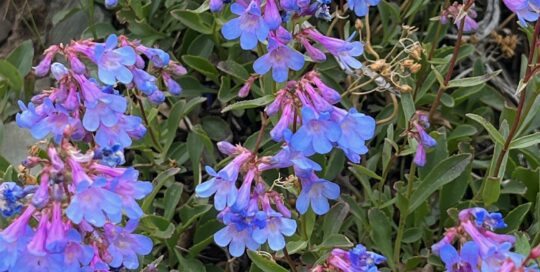
Watch for Fungal Diseases on Penstemon
